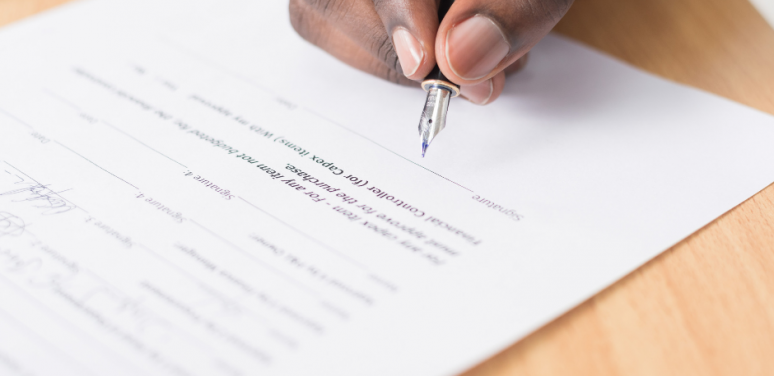Table of Contents
When a Loved One Dies: How to Probate a Will - HELP4TN blog

How Do You Probate a Will?
The death of a close relative brings grief and mourning. It also raises the question of how to deal with the property they have left behind. If that person has left a will, it tells their surviving family members how they wished their property to be divided up. The process is not automatic, however. The will must first be filed for probate to transfer assets that are solely in the deceased person’s name.
Probate is the legal process through which a deceased person's property is distributed to the beneficiaries named in the will. If the deceased owes any money, this is done after payment of any debts. A person whose will is submitted for probate is called a “testator." The property they leave behind is called their “estate.”
Probate is also used when a person dies without a will. This blog, however, only deals with situations involving a will. Probate applies when the total value of the personal property in the estate is worth more than $50,000. This total does not include a house or other real estate. If the deceased's personal property is worth less than $50,000, a small estate affidavit is used instead.
Beginning the Process
When making a will, the testator usually names the person who they wish to act as their executor. The executor takes control of the testator's assets after death and carries out their wishes about those assets. The first step in the probate process is for the person named as executor (or anyone else who might have a legal interest in the estate) to submit the will to the office of the probate court clerk in the county where the deceased person lived. The original signed will (not a copy) must be given to the clerk's office with a certified copy of the testator’s death certificate, and a sworn petition to probate the will must be filled out. The funeral home should give you several copies of the death certificate. If not, they can be obtained from the State’s Office of Vital Records.
The petition has to include information about the testator and the estimated value of their assets. It should also include the names, relationships, and cities of residence of those named in the will and of those relatives who would be entitled to inherit from the testator if there were no will. In many counties the petition must be drafted and filed by an attorney. Check with the Probate Court Clerk before attempting to use the court’s online forms by yourself. The costs of probate, including an attorney’s fees, can be paid from the deceased person’s assets.
The Next Steps
After the papers are filed, there will usually be a brief hearing before the probate court judge. If there are no objections to the appointment of the person named in the will as the executor, then the judge will appoint that person to do the job. If any relatives object to the appointment of the person named in the will, the judge will name some neutral party as the executor. This is most often an attorney. The chosen executor must take an oath to faithfully pay the just debts of the testator and to distribute the remaining assets in accordance with the testator’s wishes, as expressed in the will.
The judge then gives the executor a legal document called Letters Testamentary. This document grants the executor the authority to act on behalf of the probated estate. This includes the right to withdraw all the money from the testator’s bank accounts and deposit it in a new estate account. They can pay the testator’s debts from that account and distribute the remainder to the parties named in the will.
Dealing with Creditors
Another important part of the probate process is to let the testator’s creditors know that they have died. This will also inform them that they have a limited time to present their claims for payment to the executor.
Known creditors are supposed to be directly notified. Legal notices are placed in newspapers of general circulation to inform any unknown creditors that the testator has died and that they have a limited time (about four months) to present any claims they may have.
If the executor believes that the claims of a creditor are valid, they must pay them. If they don't believe the money claimed is owed, they can file an "exception to the claim" in probate court. The judge will then decide whether or not the claim is valid and should be paid.
Closing the Estate
At a certain point, all the just debts of the testator will have been paid and all the assets of the estate will have been distributed to the beneficiaries listed in the will. To close the estate, the executor must fill out and sign a final accounting form, documenting all payments from the estate. The accounting form is sent to all the beneficiaries named in the will, and if they agree that the information it contains is correct, they must also sign the form. This form is then submitted to the probate court judge for his approval and signature, marking the estate closed.





